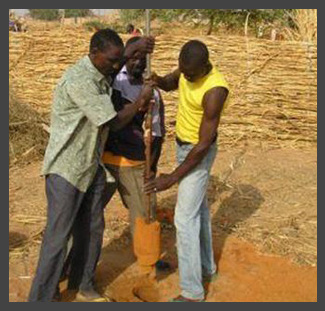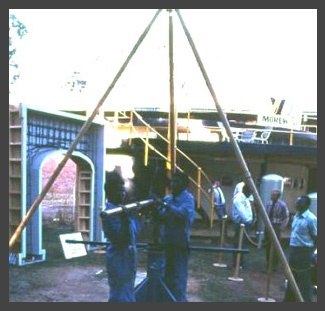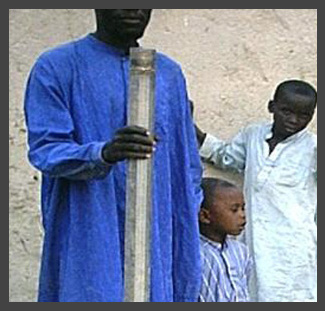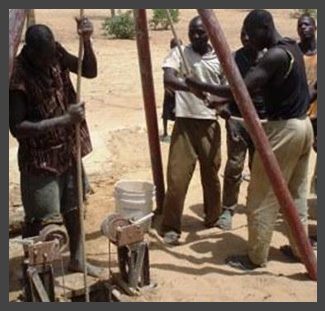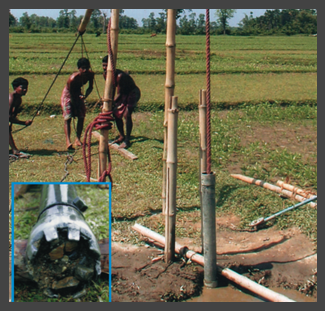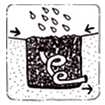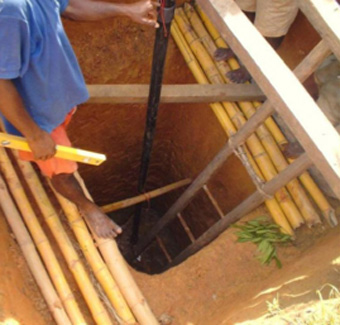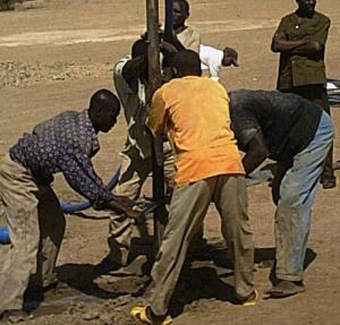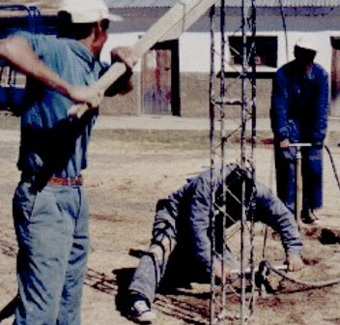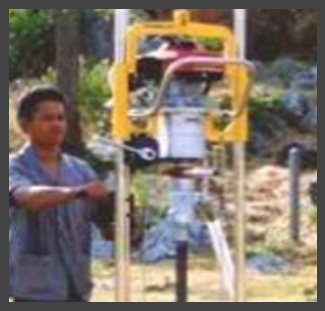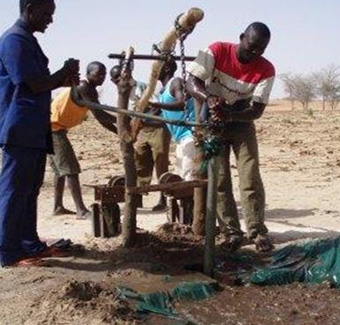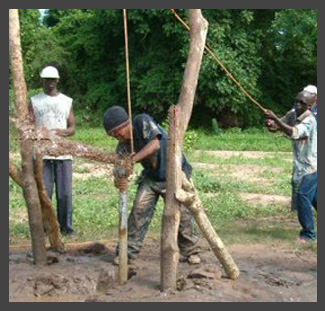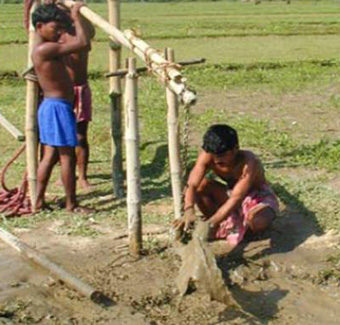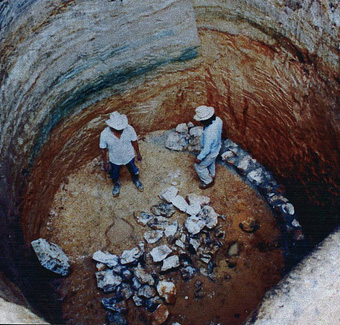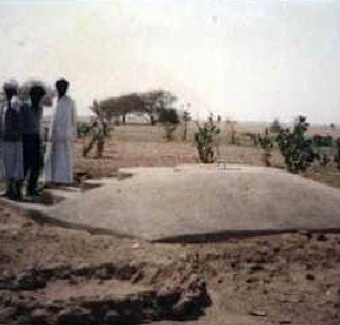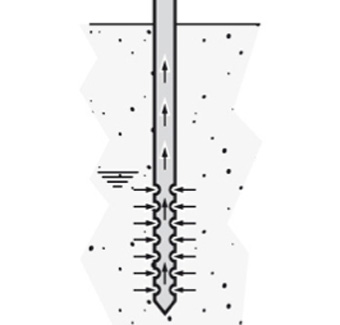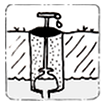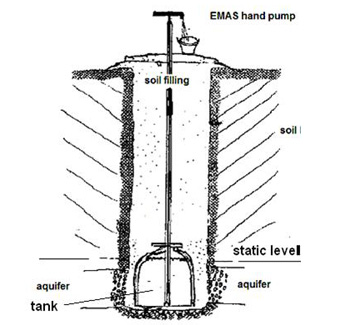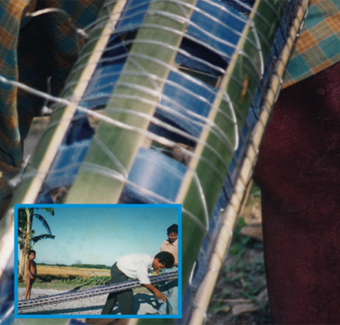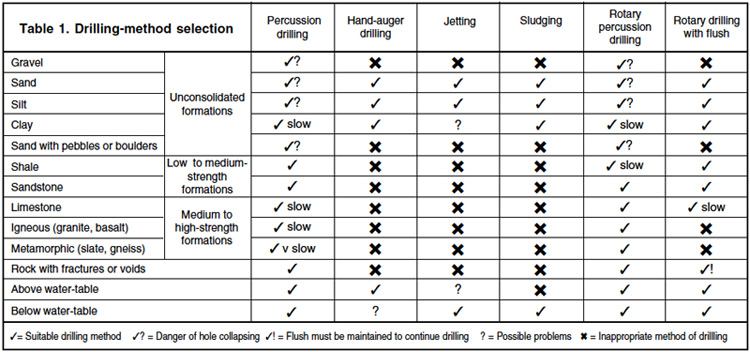Difference between revisions of "Drilling or digging"
| Line 5: | Line 5: | ||
| − | {| | + | <div style=" background-color: #efefef; text-align: center; -moz-border-radius: 8px; -webkit-border-radius: 10px; border: 1px solid #63B8FF; padding: 3px;" > |
| + | {|cellpadding="3" cellspacing="0" width="100%" | ||
|- | |- | ||
|[[Image:drilling_icon.png|center|link=http://akvo.org/wiki/index.php/Hand_auger_-_general]] | |[[Image:drilling_icon.png|center|link=http://akvo.org/wiki/index.php/Hand_auger_-_general]] | ||
| Line 25: | Line 26: | ||
|<div class="center" style="width:auto; margin-left:auto; margin-right:auto;">[[Percussion - Stone hammer| Percussion -<br>Stone hammer]]</div> | |<div class="center" style="width:auto; margin-left:auto; margin-right:auto;">[[Percussion - Stone hammer| Percussion -<br>Stone hammer]]</div> | ||
|- | |- | ||
| − | |colspan="5" style="background-color: | + | |colspan="5" style="background-color:#dedede;"| |
|- | |- | ||
|[[Image:infiltration wells.png|center|link=http://akvo.org/wiki/index.php/Infiltration_wells]] | |[[Image:infiltration wells.png|center|link=http://akvo.org/wiki/index.php/Infiltration_wells]] | ||
| Line 77: | Line 78: | ||
||<div class="center" style="width:auto; margin-left:auto; margin-right:auto;">[[Bamboo screens]]</div> | ||<div class="center" style="width:auto; margin-left:auto; margin-right:auto;">[[Bamboo screens]]</div> | ||
|} | |} | ||
| + | </div> | ||
<br> | <br> | ||
| − | = | + | <font size="4">Manual drilling comparison of methods</div> |
[[Image: Drilling Method Selection.jpg|thumb|center|600px|Drilling Method Selection. Chart: WEDC Loughborough University Leicestershire.]] | [[Image: Drilling Method Selection.jpg|thumb|center|600px|Drilling Method Selection. Chart: WEDC Loughborough University Leicestershire.]] | ||
| − | = | + | <font size="4">Manual drilling links</div> |
* VIDEO: [http://www.thewaterchannel.tv/en/videos/categories/viewvideo/889/groundwater/how-to-professionalize-the-manual-drilling-sector-in-africa How to Professionalize the Manual Drilling Sector in Africa]. Produced by UNICEF. | * VIDEO: [http://www.thewaterchannel.tv/en/videos/categories/viewvideo/889/groundwater/how-to-professionalize-the-manual-drilling-sector-in-africa How to Professionalize the Manual Drilling Sector in Africa]. Produced by UNICEF. | ||
* [http://www.rural-water-supply.net/en/resources/details/402 Human-Powered Drilling Technologies], Richard Carter, Cranfield University, 2005. | * [http://www.rural-water-supply.net/en/resources/details/402 Human-Powered Drilling Technologies], Richard Carter, Cranfield University, 2005. | ||
* [http://www.hydrology.nl/images/docs/ihp/nl/cop15/2_Richard_Taylor.pdf Groundwater and climate change in Africa: The Kampala Statement.] Richard Taylor, University College London (UK), IAH Commission of Groundwater & Climate Change. | * [http://www.hydrology.nl/images/docs/ihp/nl/cop15/2_Richard_Taylor.pdf Groundwater and climate change in Africa: The Kampala Statement.] Richard Taylor, University College London (UK), IAH Commission of Groundwater & Climate Change. | ||
| − | = | + | <font size="4">Acknowledgements</div> |
* [http://www.unicef.org/wash/files/04.pdf Understanding Groundwater and Wells in Manual Drilling]. Unicef.org. | * [http://www.unicef.org/wash/files/04.pdf Understanding Groundwater and Wells in Manual Drilling]. Unicef.org. | ||
Revision as of 22:50, 18 February 2013
Access to groundwater is not always easy, so many different types of drilling mechanisms (ranging in depth capacity and costs) are covered in this section. Africa, for example, is said to have rich amounts of groundwater, as compared with other continents. That said, machine-drilled wells are often too expensive for most of the population. Drilling ‘shallow’ wells (up to 35 meter depth) by hand, reduces the price of a well by a factor 4 to 10 compared to a machine-drilled borehole. This cost reduction enables NGOs and Governments to construct more water wells, but also ‘opens the door’ to villagers, farmers, schools and small communities to have a well constructed independently through the private sector.
Climate change considerations
With climate change events, such as drought, some areas of groundwater may be drying up, therefore deeper boreholes and wells may need to be drilled (creating greater expense). Since some aquifers will provide less water in times of drought, perched aquifers (aquifers higher than the water table) should be avoided. Coastal aquifers may get invaded by saline waters, therefore be sure to check water quality.
Manual drilling comparison of methods</div>
Manual drilling links</div>
- VIDEO: How to Professionalize the Manual Drilling Sector in Africa. Produced by UNICEF.
- Human-Powered Drilling Technologies, Richard Carter, Cranfield University, 2005.
- Groundwater and climate change in Africa: The Kampala Statement. Richard Taylor, University College London (UK), IAH Commission of Groundwater & Climate Change.
Acknowledgements</div>
